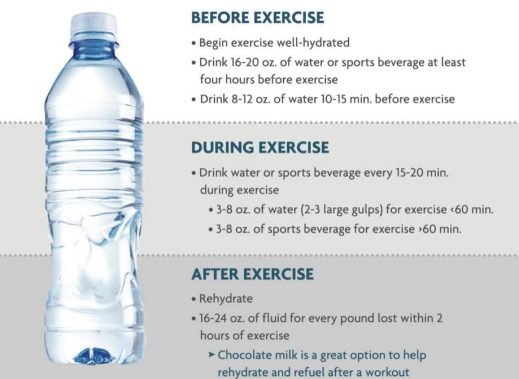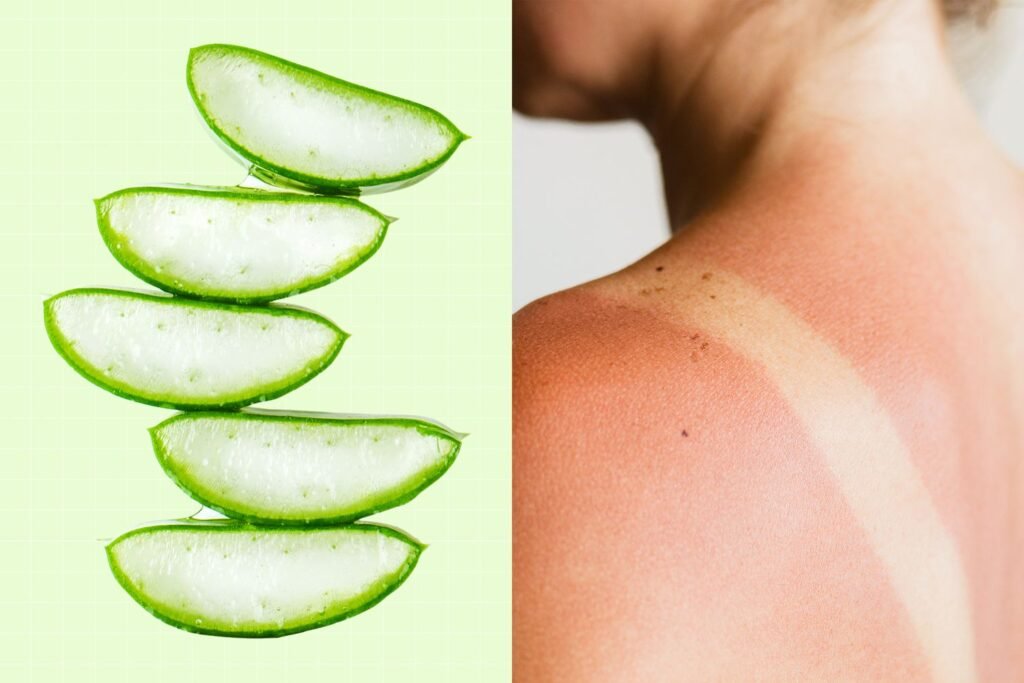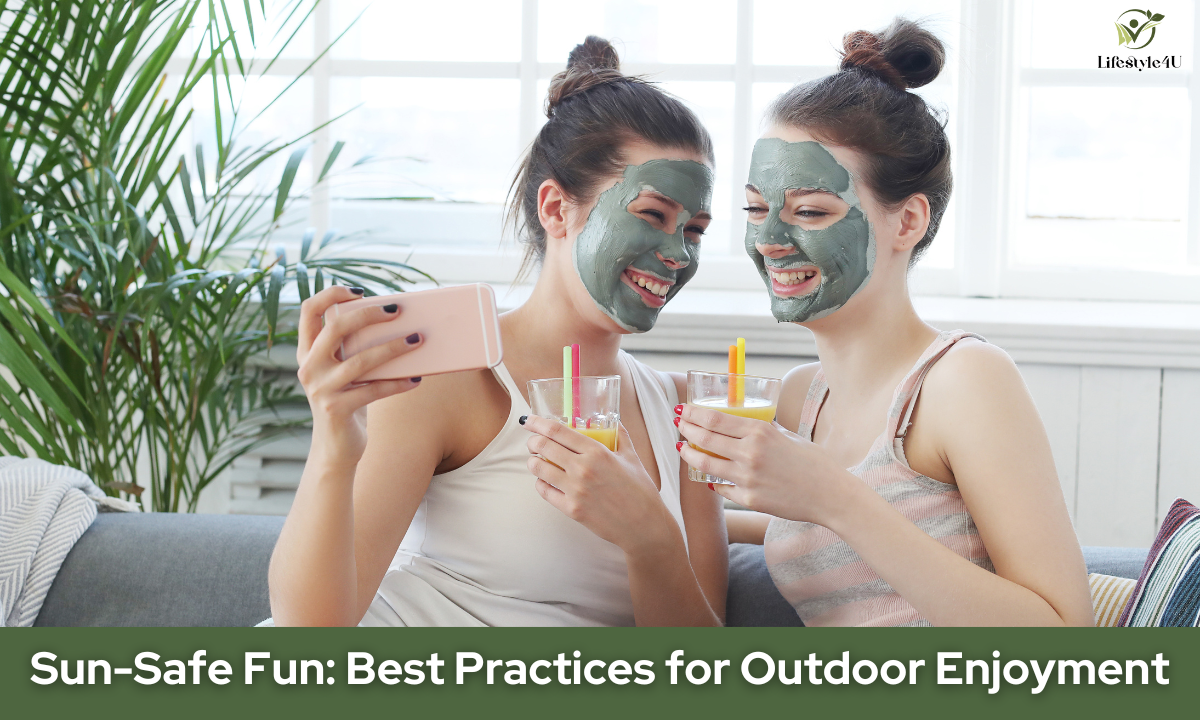Summer is here, and with it comes a season full of sunshine, outdoor activities, and, of course, the potential for some unique health challenges. But don’t worry! Staying healthy during the summer doesn’t have to be a chore. With the right tips and a bit of planning, you can enjoy all the fun and excitement summer has to offer while keeping yourself in tip-top shape.

Understanding Summer Health Risks
Summer brings many fun activities, but it also comes with some risks. From dehydration and sunburn to heatstroke and foodborne illnesses, the warmer months can affect your health if you’re not careful. Understanding these risks is the first step in preventing them.
For instance, high temperatures and increased exposure to sunlight can lead to dehydration and heat exhaustion. Similarly, spending more time outdoors can increase your chances of getting sunburned or coming into contact with allergens. By being aware of these potential issues, you can take proactive steps to protect yourself and your family.
Hydration: The Key to Summer Health

One of the most crucial aspects of staying healthy in the summer is staying hydrated. Water is your best friend when the mercury rises. It helps regulate your body temperature, keeps your skin looking fresh, and ensures that your organs function properly.
Recommended Daily Water Intake: Experts recommend drinking at least eight 8-ounce glasses of water a day, but you might need more when it’s hot outside or if you’re active.
Tips for Staying Hydrated:
Carry a Water Bottle: Always have a reusable water bottle with you. It’s an easy reminder to keep sipping throughout the day.
Eat Water-Rich Foods: Incorporate fruits like watermelon, cucumbers, and oranges into your diet. They’re not only refreshing but also help boost your water intake.
Avoid Sugary Drinks: While cold soda might seem tempting, sugary drinks can lead to dehydration. Stick to water, herbal teas, or coconut water instead.
Nutrition: Eating Right in Summer

Your diet plays a vital role in maintaining your health during the summer months. Eating light, fresh, and nutrient-dense foods can help you stay energized and cool.
Seasonal Fruits and Vegetables: Summer is the perfect time to enjoy a variety of fruits and vegetables that are in season. Berries, melons, peaches, tomatoes, and leafy greens are not only delicious but also packed with vitamins and minerals.
The Benefits of a Summer Diet:

Hydration: Many summer fruits and vegetables have a high water content, which helps keep you hydrated.
Antioxidants: Foods like berries and tomatoes are rich in antioxidants that can protect your skin from sun damage.
Energy Boost: Fresh produce provides essential nutrients that can boost your energy levels without weighing you down.
Foods to Avoid in Hot Weather:

Heavy, Fried Foods: These can make you feel sluggish and are harder to digest in the heat.
Spicy Foods: While some people enjoy spicy foods year-round, they can increase your body temperature and make you feel hotter.
Sugary Snacks: Opt for fresh fruit or yogurt instead of ice cream or candy.
Protecting Your Skin
Your skin is your body’s largest organ and needs extra care during the summer. Prolonged exposure to the sun’s UV rays can cause sunburn, premature aging, and increase your risk of skin cancer.
Dangers of UV Radiation: Ultraviolet (UV) rays from the sun can damage your skin in as little as 15 minutes. This damage accumulates over time and can lead to serious health issues.
Choose the Right Sunscreen:

Broad Spectrum: Choose a sunscreen that protects against both UVA and UVB rays.
SPF 30 or Higher: Use sunscreen with an SPF of at least 30.
Water-Resistant: If you’re swimming or sweating, make sure your sunscreen is water-resistant.
Tips for Sunburn Prevention and Treatment:

Apply Generously and Frequently: Apply sunscreen 15 minutes before going outside and reapply every two hours, or more often if you’re swimming or sweating.
Seek Shade: Try to stay out of the sun during peak hours (10 a.m. to 4 p.m.).
Wear Protective Clothing: Hats, sunglasses, and long-sleeved shirts can provide additional protection.
Treat Sunburns: If you do get skin sunburned, apply aloe vera or a cool compress to soothe your skin, and drink plenty of water to stay hydrated.
Exercise: Staying Active Safely

Staying active is important for your overall health, but exercising in the heat requires some extra precautions.
Best Time to Exercise in Summer: Early mornings or late evenings are ideal times to workout, as temperatures are cooler and the sun is less intense.
Summer-Friendly Workouts:
Swimming: It’s a great full-body workout that also keeps you cool.
Yoga: Practicing yoga indoors can help you stay active without overheating.
Walking: A brisk walk in the early morning or late evening can be very refreshing.
Avoiding Heat-Related Illnesses During Exercise:

Stay Hydrated: Drink water before, during, and after your workout.
Take It Easy: Listen to your body and take breaks if you start to feel too hot or tired.
Dress Appropriately: Wear light, breathable clothing and a hat to protect yourself from the sun.
Maintaining Mental Health

Summer can be a stressful time for some, especially with the pressure to be social and active. It’s important to take care of your mental health as well.
Impact of Summer on Mental Health: The change in routine, travel, and increased social obligations can lead to stress and anxiety for some people.
Activities to Boost Mental Well-being:

Nature Walks: Spending time in nature can reduce stress and improve your mood.
Meditation: Even a few minutes of meditation each day can help you stay calm and focused.
Social Connection: Make time to connect with friends and family, but also permit yourself to take breaks when needed.
Managing Summer Stress:

Plan Ahead: Reduce last-minute stress by planning your activities and travel in advance.
Set Boundaries: It’s okay to say no to activities that don’t align with your energy levels or interests.
Practice Self-Care: Make time for activities that you enjoy and that help you relax.
Preventing Summer Illnesses
Summer is a time for fun, but it’s also a time when certain illnesses become more common.
Common Summer Illnesses:
Heat Exhaustion and Heatstroke: Caused by prolonged exposure to high temperatures.
Food Poisoning: More likely due to outdoor cooking and picnics.
Insect Bites and Stings: Mosquitoes and ticks are more active in the summer.
Prevention Tips and Remedies:
Stay Cool: Spend time in air-conditioned environments and take cool showers.
Practice Food Safety: Keep perishable foods chilled and wash your hands before eating.
Use Insect Repellent: Apply repellent to protect yourself from bites and check for ticks after spending time outdoors.
Travel Health Tips
Traveling can be one of the highlights of summer, but it’s important to take steps to stay healthy on the road.
Preparing for Healthy Travel:

Pack Healthy Snacks: Bring fruit, nuts, and whole-grain snacks to avoid unhealthy options.
Stay Hydrated: Carry a refillable water bottle and drink water regularly.
Plan for Rest: Make sure you get enough sleep and plan for downtime to avoid travel fatigue.
Staying Healthy on the Go:
Stay Active: Incorporate physical activity into your travel plans, like walking tours or hiking.
Eat Balanced Meals: Try to eat balanced meals, even when dining out, and avoid overindulging in fast food.
Protect Your Skin: Apply sunscreen, even if you’re traveling by car or plane, as UV rays can penetrate windows.
Post-Travel Health Considerations:
Rest and Recover: Give yourself time to rest and adjust after traveling.
Monitor Your Health: Be aware of any symptoms that could indicate an illness picked up during travel and seek medical advice if necessary.
Safety in the Sun
Enjoying the outdoors is one of the best parts of summer, but it’s essential to do so safely.
Safe Practices for Outdoor Activities:

Use Sun Protection: Apply sunscreen, wear hats and sunglasses, and seek shade.
Stay Hydrated: Bring plenty of water with you and take breaks in the shade.
Be Aware of the Heat Index: Pay attention to the heat index and avoid outdoor activities when it’s dangerously high.
Protecting Children and Pets from Heat:
Children: Make sure kids take breaks to cool off, wear protective clothing, and drink water regularly.
Pets: Never leave pets in a parked car, provide plenty of water, and avoid walking them on hot pavement.
Summer Sleep Tips
Hot weather can make it challenging to get a good night’s sleep, but with a few adjustments, you can rest comfortably.
Impact of Heat on Sleep: High temperatures can disrupt your sleep patterns and make it harder to fall and stay asleep.
Tips for a Good Night’s Sleep in Summer:
Keep Your Room Cool: Use fans, air conditioning, or open windows to maintain a comfortable sleeping temperature.
Use Light Bedding: Opt for lightweight, breathable fabrics like cotton.
Stay Hydrated: Drink a glass of water before bed to stay hydrated without waking up in the middle of the night.
Staying Cool Indoors
Sometimes the best way to beat the heat is to stay indoors, but you still need to stay cool.
Effective Ways to Keep Your Home Cool:

Close Blinds and Curtains: This helps keep the sun’s heat out during the day.
Use Fans Strategically: Place fans to create a cross-breeze and circulate air.
Avoid Heat-Generating Activities: Try to cook meals that don’t require using the stove or oven.
Importance of Ventilation: Proper ventilation helps to keep indoor air fresh and prevents overheating. Make sure to ventilate your home, especially after cooking or showering.
Managing Allergies
Summer can be a tough time for allergy sufferers, but there are ways to manage your symptoms.
Common Summer Allergies: Pollen, mold, and insect stings are common allergens during the summer months.
Tips for Allergy Management:
Monitor Pollen Levels: Check daily pollen counts and try to stay indoors when levels are high.
Keep Windows Closed: Prevent allergens from entering your home by keeping windows closed and using air conditioning.
Shower After Being Outside: This helps remove pollen from your skin and hair.
Conclusion
Staying healthy this summer is all about balance. By taking care of your body with proper hydration, nutrition, and sun protection, and by managing your mental health and staying safe, you can enjoy everything the season has to offer. Remember to listen to your body, plan, and take it easy on the hottest days. Here’s to a happy, healthy summer!

FAQs
You should aim to drink at least eight 8-ounce glasses of water a day, but more if you’re active or it’s particularly hot outside.
Fresh fruits and vegetables, especially those with high water content like watermelon, cucumbers, and berries, are great for staying hydrated and healthy.
Use a broad-spectrum sunscreen with at least SPF 30, reapply it every two hours, and wear protective clothing like hats and sunglasses.
Dehydration, heat exhaustion, sunburn, food poisoning, and insect bites are some common health risks in the summer.
Keep your bedroom cool with fans or air conditioning, use light bedding, and stay hydrated to help regulate your body temperature.

